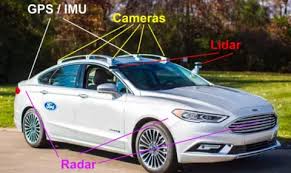Islamabad, Aug 5: Ford has filed a patent on a cutting-edge idea that could alter the way traffic cops monitor infractions. The “Speeding Violation Responder System” locates and notifies the police of speeding infractions using a range of integrated sensors within the vehicle. The way that the police enforce traffic laws could be significantly altered by this new tactic.
How It Prevents Speeding
The system’s objective is to identify vehicles exceeding speed limits. It logs the make, model, color, and unique characteristics of the offending car. These images are then sent, along with relevant data, to a roadside unit or another law enforcement vehicle for further examination.
Since this information may be shared in real time through the Internet of Things, other police units can react appropriately (IoT). For instance, if the vehicle continues to violate the law, they may slow down the speeding motorist or take more images.
Additional Traffic Infractions
The patent lists applications for charges other than speeding related traffic infractions. Adding more sensors, such lidar, cameras, and radar, could increase the system’s accuracy and range.
It’s interesting to note that Ford hasn’t decided if its commercial vehicles will employ this technology or not. The patent describes potential uses for both human-driven and autonomous vehicles. The system may be impacted by laws like the European Union’s speed limitation guidelines.
Ethics and Privacy Concerns
Although there’s a chance that this technology may improve traffic safety, there are significant privacy and ethical issues. If linked vehicle data is utilized to track and report driving behavior, there might be more surveillance. This is a more general topic on data privacy in the era of linked cars.
There are rumors that automakers, like Ford, sell their customers’ driving records to brokers, who then market the information to insurance companies. Through altering driving habits, this strategy can lower insurance premiums. It has drawn criticism, nevertheless, for amassing an excessive amount of personal data information that might include sensitive details like face features and behavioral patterns.
While this technology is still in the patent phase, there will be in-depth discussions about its application and ethical implications. When developing and implementing these kinds of monitoring systems, automakers like Ford will need to strike a balance between increased road safety and individual privacy.











